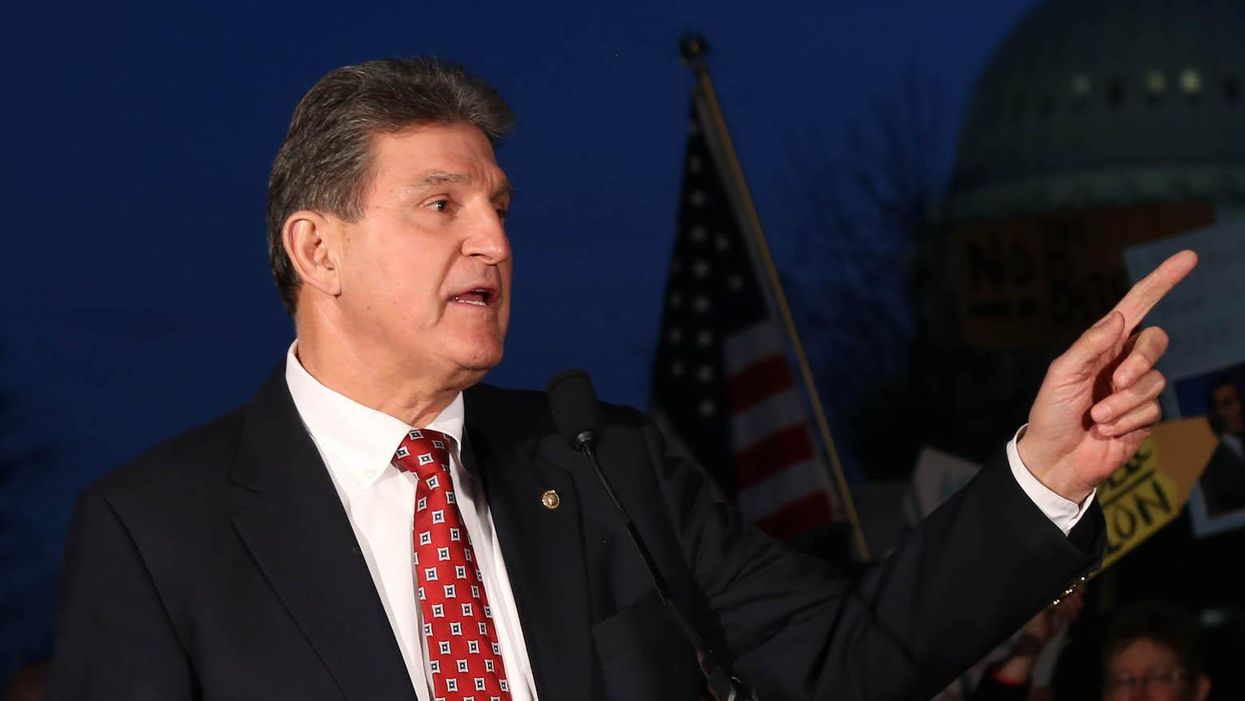|
Sinema and Manchin's plan crashes and burns after a key miscalculation

President Joe Biden met with the House Democratic caucus on Friday and confirmed what had already become clear the previous night: Democratic Sens. Kyrsten Sinema of Arizona and Joe Manchin of West Virginia have failed in their plan this week.
Multiple reports confirmed that the president's message was unambiguous. The bipartisan infrastructure bill that passed the Senate in August isn't going to make it through the House until there's a deal within the Democratic Party on the reconciliation bill — which includes a slew of tax increases and social program spending that progressives are demanding.
What this means in the short term is that the more conservative Democrats — including Sinema and Manchin, but also some House members such as Rep. Josh Gottheimer of New Jersey — aren't getting their way. They wanted the bipartisan infrastructure bill to pass the House and become law before the formal negotiations began on the reconciliation package.
Their reasons for preferring this strategy aren't entirely apparent, and they may have diverse motivations. But the fundamental logic behind the plan was straightforward. They are more enthusiastic about spending on infrastructure and have qualms with the more expansive reconciliation package. Some of them may prefer to see the reconciliation bill fail altogether rather than pass. So they wanted to get the infrastructure bill signed into law so they could take away the progressives' leverage before entering into intra-party negotiations. As long as the progressives can threaten to block the infrastructure bill — as they did successfully Thursday night — they have a strong hand to demand concessions from the conservative Democrats in the reconciliation bill.
00:0201:45

Manchin, Sinema, and Gottheimer seemed genuinely surprised that their plan didn't work. But there's no reason for shock. The congressional progressives and the Democratic leadership said explicitly from the start that they viewed both bills as an inseparable pair — the "two-track process," as it was called. Everyone was aware of this — despite Manchin's later claims of ignorance. This process was the reason progressives tolerated the conservatives' efforts during the spring and summer to work extensively with Republicans to get bipartisan agreement in the Senate on the infrastructure bill.
Sinema and Manchin were central players in the Senate negotiations, which were a subject of pride for both of them. They clearly concluded that, having negotiated the infrastructure deal in the Senate, they could pressure the House to pass the same bill. They would then have the upper hand in the reconciliation negotiations, if they even allowed such talks to take place.
But Sinema and Manchin miscalculated. They thought they could walk all over the House progressives and make unilateral demands without giving up any concessions. They thought their crucial votes in the Senate and their small number of allies in the House Democratic caucus gave them the power to dictate the terms of the whole process.
It didn't work because the progressives were able to stick together. Led by Democratic Rep. Pramila Jayapal of Washington, the Congressional Progressive Caucus consistently and convincingly promised that it had enough votes to tank the infrastructure bill without a deal on the reconciliation package. This threat kept House Speak Nancy Pelosi from even bringing the bill up for a vote in her chamber this week, despite her previous pledges to the conservative Democrats to do so. And Sinema and Manchin never even bothered to garner enough votes from House Republicans to subvert such a threat from the progressives.
Many media outlets framed this as a failure for the Biden presidency. It's possible that will end up being true, if neither bill ever passes. But some observers argued that progressives are really doing Biden a favor — whether he currently agrees or not — by using their leverage against the conservative Democrats and ensuring that more of his agenda gets passed. And Manchin and Sinema have been forced to grudgingly enter into real negotiations over the reconciliation bill, a sign that deliberative progress is actually being made.
Biden reportedly acknowledged Friday that the progressives will have to accept a smaller reconciliation bill than they were hoping for — currently pegged at $3.5 trillion — but it will quite likely be bigger than it would've been if they had caved this week. And the president said Friday that he still believes Congress will get the work done:
So Biden's not a failure — at least not yet. What failed is Sinema and Manchin's plan. They thought they could force their infrastructure bill through after treating members of their own party worse than they treated Senate Republicans. It didn't work. They can keep negotiating, of course, and they have every reason to. But it won't be on the terms they'd hoped.



No comments:
Post a Comment